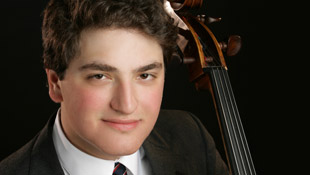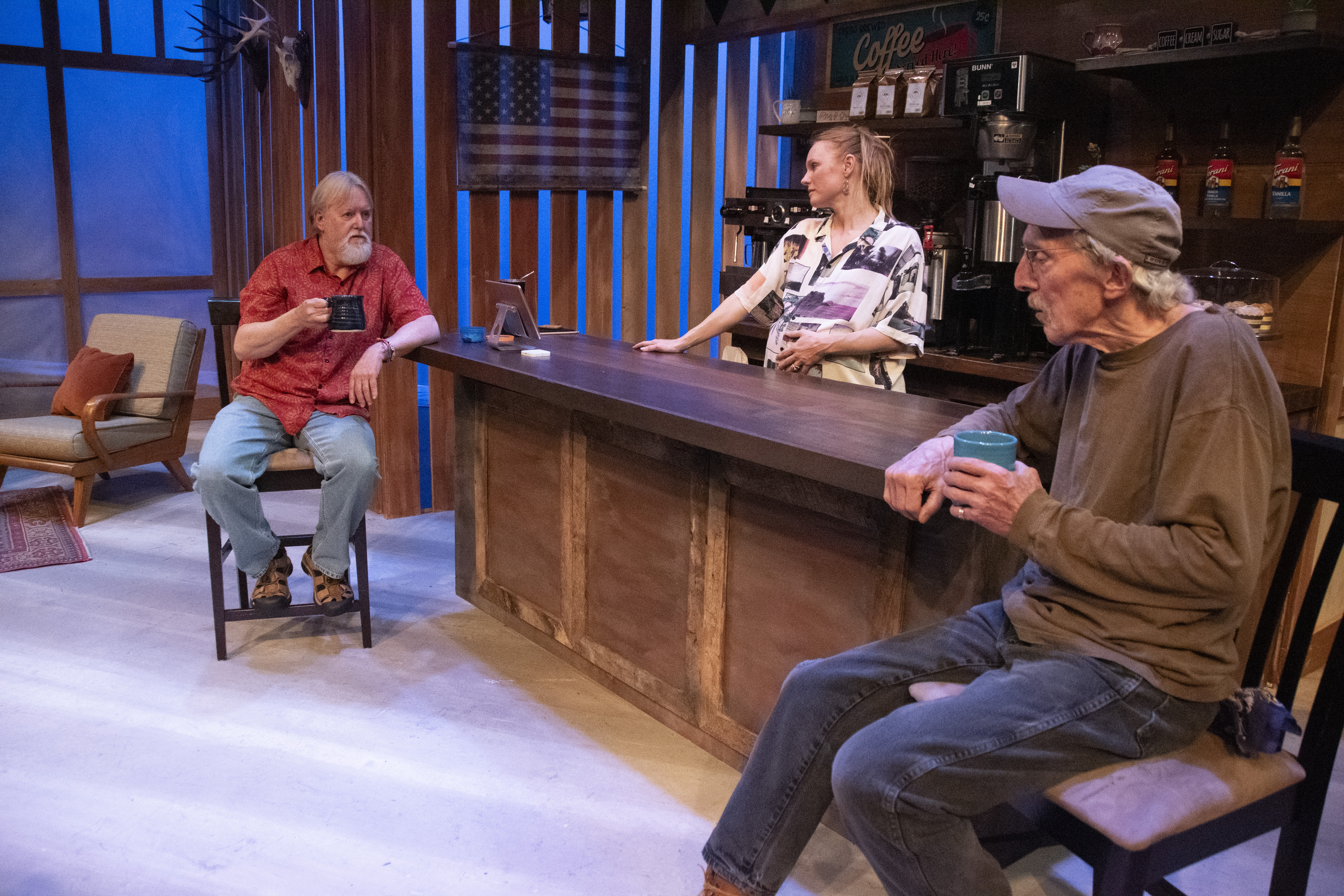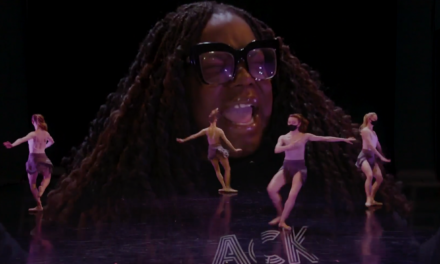Cellist Julian Schwartz. photo-Louisville Orchestra
Enigma Variations
Louisville Orchestra: Shostakovich, Elgar and Schuman
Jorge Mester, conductor
Julian Schwartz, cello
Review by Katherine Dalton
Entire contents copyright © 2015 by Katherine Dalton. All rights reserved.
By the time the curtain rose for the Louisville Orchestra’s seventh Classics Series concert of the year, Saturday’s warmer temperatures had made driving around town a little easier. But the bank of snow that remained between Broadway and the entrance to the Brown Theatre made getting inside a little tricky, and no doubt the weather kept several patrons away, as it was a relatively light audience. Too bad. It was a fine night of music.
The featured soloist of the night was Julian Schwartz, who played Shostakovich’s Cello Concerto No. 1. That is not a piece I enjoy very much, and I was amused to see in the program that Stalin initially criticized the composer’s work for its “formalist perversions, dissonance, contempt for melody, and the use of chaotic and neuropathic discords—all of which are alien to the artistic tastes of the Soviet people.” I have to admit that on this subject, at least, I am somewhat of the Soviet people’s opinion.
But any prejudice I have against the piece itself did not keep me from taking great pleasure in hearing Julian Schwartz perform it, and to watch him play is to be reminded why recorded music can never elicit the same joy you can experience hearing good music played live. It is not just the aural complexity and color of hearing the sounds of sixty different instruments coming at your ear from sixty slightly different directions, but the connection between player and audience, and the emphasis that a strong musical personality will give to the piece he plays.
Schwartz played with intensity and very good intonation and rhythm, and he handled the difficult cadenza well, getting a great deal of emotion out of a piece that is, at times, dissonant and abstract. My companion noticed that the first chair of the orchestra’s cello section was listening with even greater enjoyment than we were.
Excellence is always remarkable, but it is all the more remarkable given that Mr. Schwartz was graduated from The Julliard School just last year, which makes him about 23 years old. He looks and plays as if he were a decade older–but he isn’t. (Also notable in this piece was Jon Gustely on the French horn.)
The Shostakovich fell between two very different works. The evening began with William Schuman’s New England Triptych, a short, three-movement symphony piece based on the hymns and anthems of early American composer Williams Billings. The work has a patriotic and almost pops-concert feel in its first and third movements (the third, Chester, is in fact based on a tune the Continental Army used as a marching song), and is more poignant and hymn-like in its second.
As for the final work of the night, it was the crowd-pleasing Enigma Variations by Edward Elgar, and here, as with the soloist, we got all the benefit of the tactile quality live music has. This is a lush piece in parts, and the orchestra was up to the task, filling the Brown with sound that a times swept from one side of the players’ chairs around to the other. One of the virtues of this work is that it gives every part of the orchestra a chance to shine, including the oboeists, the first cellist, and the orchestra’s all-too-often-forgotten red-haired stepchild, the first violist (LO veteran Jack Griffin). The performance ended the evening triumphantly, and left the audience congratulating themselves that they had braved the snow.
During the Enigma Variations, far to stage left, at the end of the cello section, there was an extra chair—and in it sat Julian Schwartz, playing the Elgar with obvious delight. I have never seen a soloist cap his evening by joining the orchestra for the subsequent piece. It was fun to see, and a compliment to the orchestra. It was also a testament to the lack of pretentiousness of this young man, who seems to be making a musical career for himself because—more than anything else–he loves to play.
Enigma Variations
February 21, 2015 @ 8 p.m.
The Louisville Orchestra
The Brown Theatre
315 West Broadway
Louisville, KY 40202
Louisvilleorchestra.org
 [box_light]Katherine Dalton began working in journalism at The Yale Literary Magazine, during its brief period as a national magazine based at Yale. She has also worked at Harper’s Magazine and Chronicles, where she remains a contributing editor. She has written for publications ranging from the Wall Street Journal and the Baltimore Sun to the University Bookman and Harper’s Bazaar. Ms. Dalton is a contributor to Wendell Berry: Life and Work (edited by Jason Peters), Morris Grubb’s volume Conservations with Wendell Berry, and is currently at work on a book about farming. She lives in Kentucky.[/box_light]
[box_light]Katherine Dalton began working in journalism at The Yale Literary Magazine, during its brief period as a national magazine based at Yale. She has also worked at Harper’s Magazine and Chronicles, where she remains a contributing editor. She has written for publications ranging from the Wall Street Journal and the Baltimore Sun to the University Bookman and Harper’s Bazaar. Ms. Dalton is a contributor to Wendell Berry: Life and Work (edited by Jason Peters), Morris Grubb’s volume Conservations with Wendell Berry, and is currently at work on a book about farming. She lives in Kentucky.[/box_light]




